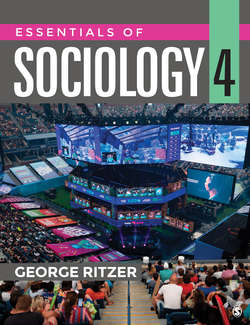Читать книгу Essentials of Sociology - George Ritzer - Страница 63
На сайте Литреса книга снята с продажи.
Ethnomethodology
ОглавлениеEthnomethodology is another inter/actionist theory, but it focuses on what people do rather than on what they think (Liu 2012). Ethnomethodologists study the ways in which people organize everyday life.
Ethnomethodologists regard people’s lives and social worlds as practical accomplishments that are really quite extraordinary. For example, one ethnomethodological study of coffee drinkers attempted to understand their participation in a subculture of coffee connoisseurship (Manzo 2010). Learning to enjoy coffee is something of an accomplishment itself; taking that enjoyment to the next level and becoming a connoisseur requires even more doing.
Their view of large-scale social structures differs from that of structural-functionalists, who tend to see people and their actions as being highly constrained by those structures. Ethnomethodologists argue that this view tells us very little about what really goes on within structures such as courtrooms, hospitals, and police departments. Rather than being constrained, people act within these structures and go about much of their business using common sense rather than official procedures.
The best-known example of an ethnomethodological approach relates to gender (O’Brien 2016; Stokoe 2006). Ethnomethodologists point out that people often erroneously think of gender as being biologically based. It is generally assumed that we do not have to do or say anything in order to be considered masculine or feminine; we are born that way. But, in fact, there are things we all do (e.g., the way we walk) and say (e.g., the tone of our voice) that allow us to accomplish being masculine or feminine. That is, being masculine or feminine is based on what people do on a regular basis. This is clearest in the case of those who are defined as being male or female at birth (based on biological characteristics) but then later do and say things that lead others to see them as belonging to the other gender (based on social characteristics).
